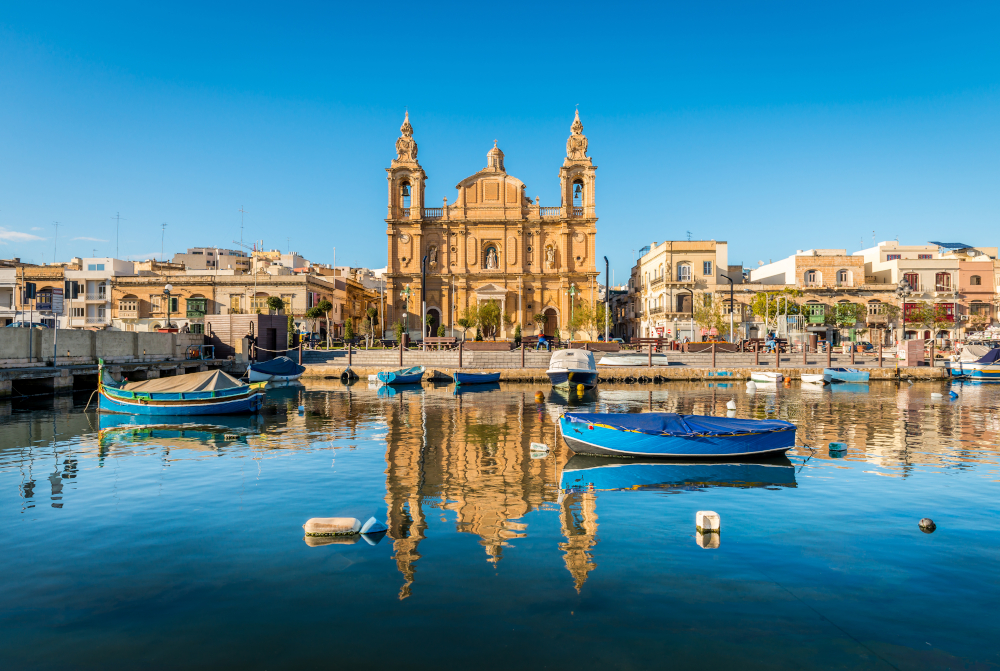Due to the level of flexibility offered by an Isle of Man Exempt Fund, enquirers often approach conversations with a carte blanche mindset regarding the structuring and operation of the Fund, and often believe that this is a simple solution.
Unfortunately, there are many aspects that need to be considered, some of which require expert guidance and services. It is these factors which I aim to introduce in this short piece. As this article’s name suggests, these are the elements you need to consider when, and ideally prior, to commencing structuring your Fund.
In this article we will examine and highlight some of the following elements:
Setting up an Isle of Man Exempt Fund
In this section we will not cover the legislative framework, but rather some of the options open to the Promoter regarding the constitution of their Isle of Man Exempt Fund.
You can read our article An Isle of Man Exempt Fund – What, How and Why? to find out more about the legislative framework and requirements of an Isle of Man Exempt Fund.
The Promoter should first take advice that will underpin their structuring – it will inform them of which entity, or mix of entities, is best suited to achieve their objectives.
There are two common choices regarding structuring:
A Limited Partnership
This is by far the most common route elected, and involves a Private Limited Company acting as General Partner (GP), formed under either the Companies Act 1931 (CA 1931) or Companies Act 2006 (CA 2006). You can find out more about the differences between the two regimes here:
Usually the GP is a CA 2006 company, and the investors are the Limited Partners (LP).
The GP has unlimited liability and engages in the actual administration of the Exempt Fund.
The LPs’ liability is limited to their contributed capital, and they must not engage in the day-to-day management of the Exempt Fund.
Usually the GP engages a third-party investment adviser to manage the assets, however, subject to certain criteria the Promoter of the Isle of Man Exempt Fund can act as an investment adviser to the GP.
A Limited Partnership offers a more traditional structure that would be well suited to Promoters wishing to operate a single Isle of Man Exempt Fund.
A Protected Cell Company
Protected Cell Companies (PCC) were not covered in our foundation article, so I will give a little extra insight here for completeness.
The Isle of Man Protected Cell company can be formed under the CA 1931 or CA 2006. If the PCC is formed under the CA 1931, it is also subject to the Protected Cell Companies Act 2004. If the PCC is formed under the CA 2006, it is governed by the terms of the CA 2006.
Regardless of which Act the is chosen, the PCC must be limited by shares, however those shares can be of nominal or nil value. Further, an existing company that meets the requirements of a PCC can apply to be converted into a PCC.
A PCC is a single legal entity and can make agreements, be sued and own assets in its own right. The PCC can create an unlimited number of Cells, each of which represents ringfenced assets and liabilities which are segregated from the other Cells and the Non-Cellular assets and liabilities i.e. the PCC’s assets and liabilities. Importantly, each Cell does not have separate legal personality, and does not represent a separate legal entity.
In addition to the PCC’s Non-Cellular Ordinary Shares, Cellular shares may also be issued. The Shareholder of Cellular shares can participate in the activities of that Cell i.e. those rights defined by the Articles of Association. For our purposes this means the Investor, subject to meeting certain criteria and being compliant with their Tax Advice, can participate in the Investment Management – again we will consider this further down.
A set of accounts must be maintained, and a Tax Return submitted in respect of each Cell. Further, each Cell must be clearly identifiable as a Cell, and any transacting party must be made aware that they are dealing with a Cell of a PCC.
A PCC may be a good option for those seeking to create several Isle of Man Exempt Funds in a cost efficient manner. This can be for many different reasons, such as:
- Different rounds of investment
- Investing into different economic trade areas
- Structuring the Cells to mature at different dates
- Investing into different or ringfenced asset classes
- Segregating projects e.g. Real Estate development etc.
Whether the Promoter prefers the Limited Partnership or PCC, they will require legal services to draft important constitutional contracts, which will often be tailored to the structure the Promoter required e.g. will the Isle of Man Exempt Fund be an open or closed ended arrangement? Any particular operational requirements or objectives they want to make provision for etc.
This documentation can include, where appropriate, a modified Articles of Association or Partnership Agreement, Service Agreements between the fund administrator and the Promoter, Agreements between the Investment Manager and administrator, notices or declarations etc. All of which have cost implications for the Promoter to bear in mind – we consider costs later.
Dixcart work with legal experts to ensure all constitutional documentation is appropriate, compliant and fit for purpose. This drafting provides the bedrock for not only our relationship with the parties involved, but also delivers certainty and stability to the arrangement.
Isle of Man Exempt Fund Investors
To recap on what we covered in An Isle of Man Exempt Fund – What, How and Why?, an Isle of Man Exempt Fund provides some restrictions concerning the investors:
- There must be no more than 49 investors per Isle of Man Exempt Fund;
- The Isle of Man Exempt Fund cannot be promoted to the public.
The Isle of Man Exempt Fund is not designed to be a retail investment for high volumes of investors, rather it is geared as a private arrangement, describes as one on a ‘family and friends’ basis, for experienced investors. I have purposefully worded the first bullet here to underline the fact that, for example, under a PCC the Promoter can have an unlimited number of Cells and therefore Exempt Funds, so long as each Cell meets the requirements of a bona fide Isle of Man Exempt Fund.
With this in mind, careful consideration needs to be given as to the ‘who’ and ‘how’ of the Isle of Man Exempt Fund – Who will be your target investors and how will you engage them?
Additionally, although not prescribed by statute, the Promoter should consider other relevant features of their target investor’s profile, such as the anticipated average level of investment, if there are minimum investment requirements, which jurisdictions will the investors be based etc.
For example, the Promoter may already work or associate with a group of appropriate individuals or companies, or may be a member of a network, or know appropriate Promoterele. There may be a minimum investment amount of hundreds of thousands set, with a target total investment pot of X million and an estimated rate of return at X%.
In short, the Promoter needs to develop a clear rationale for how the Isle of Man Exempt Fund is promoted, what is expected from the investors and what the investors can expect. Always remembering that public promotion must be avoided absolutely.
Isle of Man Exempt Fund Asset Selection
The regulatory framework offers the Isle of Man Exempt Fund ultimate flexibility with regards to the Promoter’s choice of asset classes, how custody is arranged, auditing etc. However, the Corporate Service Provider will have to meet its obligations regarding compliance, and therefore ensure their statutory duties are met.
Whilst it is not a strict legal requirement, it is best practice for a thorough Private Placement Memorandum (PPM) to be drafted which expressly covers all of the Ts&Cs of the Isle of Man Exempt Fund.
The PPM details the rules and objectives of the Isle of Man Exempt Fund in a similar way to a Fund Prospectus. It is the document that a prospective investor will want to review, in order to fully understand the Isle of Man Exempt Fund and how it operates.
The PPM covers subject matter such as the targeted asset classes, how and when capital is deployed, if the Exempt Fund will accumulate gains or distribute income. Here, the features relating to the selection of assets include:
Geolocation of assets and their custody – The Promoter needs to have a full understanding regarding the situs of the linked assets – where are they located and or held in the world? The rules governing compliance still reign supreme here. If the Promoter is wishing to deploy capital into jurisdictions at higher risk of money laundering, terrorist finance, bribery or corruption, this needs to be considered carefully. Even where the risks can be mitigated by process and procedure, and activity undertaken by the Corporate Service Provider, those structures that carry higher risks also incur enhanced compliance monitoring and controls, which in turn have cost implications.
Nature of the linked assets – where the fund is ‘vanilla’ in nature i.e. carries out a simple investment mandate such as investing into listed stocks and shares etc. such activity does not negatively affect the risk rating. Whereas, if the scope of the Isle of Man Exempt Fund included novel assets, such as Crypto Currencies, the activity could very well carry compliance implications.
It is our current policy that holding NFTs as personal investments can be acceptable. However, to deal with or offer out such assets in a commercial setting would be outside of our risk profile. In the instance of an Exempt Fund this can be a nuanced point and would be taken on the circumstances of the Fund offering, considering the purpose of the Fund and investors amongst other things.
In the instance of an Isle of Man Exempt Fund, where novel assets are being considered, it is best to contact us at an early stage to discuss the acceptability of the prospective asset classes.
Important disclosures – If the promoters have any existing interests either in the assets being transferred into the Isle of Man Exempt Fund, or in the proposed assets to be invested into, such interests need to be disclosed within the PPM e.g. if there is an introducers arrangement, if they hold a position within a company whose shares will be purchased or transferred, if there is a commercial relationship with the vendor of the assets, or any other incentive of any kind, this must be disclosed.
There are many more aspects to be considered, which are of course unique to each Isle of Man Exempt Fund.
Isle of Man Exempt Fund Investment Management
There are no prescriptive legislative requirements pertaining to an Isle of Man Exempt Fund and how it manages its linked assets. However, this isn’t to say that the Promoter has a blank canvas regarding how the Exempt Fund property is managed.
The service provider will have its own appetite for risk, and therefore corresponding policies and procedures that relate to asset management. At Dixcart we offer two options in this regard:
- The Promoter or Dixcart engage a third-party investment manager;
- Under certain circumstances, the Promoter can act as investment adviser.
Option no’1 is preferable, as the investment manager will be a qualified and licensed professional who is geared to deliver such services.
Option no’2 is considered on a case-by-case basis and requires that the Promoter applying to be the investment manager has demonstrable experience or expertise in the chosen asset classes. This may flow from their career to date, qualifications etc.
The investment management of the Isle of Man Exempt Fund needs to be considered from outset.
Banking for Isle of Man Exempt Funds
When the Promoter is considering how they bank the Isle of Man Exempt Fund, there are similar considerations to their asset selection. There will be a risk-based approach adopted by the chosen bank and various factors e.g. jurisdictions, asset class etc. will directly influence how acceptable the application for an account will be. This may also result in higher banking costs.
Further, many high street banks simply will not provide services to entities that do not have Isle of Man Directors. Where this is the case, other options may have to be considered i.e. can you bank in other jurisdictions? Does the Promoter have existing banking relationships?
Dixcart have existing relationships with all major banks on the Isle of Man and can facilitate banking services on fully managed entities. Or where Dixcart are not providing Directors, introductions can be made where appropriate.
Tax Treatment of Isle of Man Exempt Funds
In my line of work, I think I may say this sentence more than any other:
‘Have you taken tax advice?’
Tax advice is absolutely and unequivocally at the centre of any offshore planning. As a Corporate and Trust Services Provider, we need to be sure that A) the Promoter is not creating any unknown liabilities for themselves, and B) the Promoter structuring is not going to create any adverse consequences for Dixcart C) the structuring will work as intended.
There are many angles that need to be considered when it comes to the Isle of Man Exempt Funds – here are a few of the considerations:
Assets
The advice will consider where the assets are located. Depending on the treatment of the asset within the jurisdiction and the nature of the assets, there may be tax liabilities e.g. an asset that generates income and gains etc.
The Investors
When entering and exiting the fund, the investors will need to take tax advice to ensure they do not create any unintended tax consequences – an unexpected tax bill could remove any benefit of participating within the Exempt Fund, or even create a loss.
The Promoter
As with the investors, the Promoter will need tax advice to assess their personal circumstances in order to ensure that the structure is the most effective way to achieve their objectives, and that engaging in the structuring will not lead to any unintended tax consequences.
These are only very high-level considerations, and there are likely to be many more. Each Isle of Man Exempt Fund will be unique on the facts, and therefore this complex arrangement demands that all parties’ tax positions are fully considered.
Over our 50+ years, Dixcart have built up a superb network of professionals who can advise on such structures. No matter where you are in the world, we can make appropriate introductions to a local tax adviser.
Isle of Man Exempt Fund Costs
I have already alluded to this earlier within the article, so I will keep this short. I am not dissuading the Promoter of the virtues of the Isle of Man Exempt Fund, as they can be very beneficial, however this does need to be caveated:
Setting up an Isle of Man Exempt Fund may well be a cheaper exercise than establishing other types of Fund, however please note that this is NOT a cheap exercise. We would always suggest that the Promoter also considers the potential use of an investment holding company as an alternative to their Isle of Man Exempt Fund, and whether their objectives can be met in this way.
The legals alone will likely cost in the order of tens of thousands of pounds. The Promoter will also have the Corporate Service Provider’s administrative fees, which are usually calculated as the higher of a minimum cost and a percentage of assets under management. Finally, the Promoter will have to meet any third-party fees – which will thoroughly depend on the nature of the linked assets i.e. if the assets are property such as real estate, you may need property managers, insurance etc.
In summary, the Exempt Fund could have six figure running costs, so this will need to be factored into the likely growth on the Isle of Man Exempt Fund and any tax savings and efficiencies compared to all other financial considerations.
How Can Dixcart Help
Dixcart hold Class 3(11) and 3(12) Isle of Man FSA licenses, which enables us to act as the Functionary of an Isle of Man Exempt Fund.
We do not provide investment management services or tax advice. We cannot give undertakings with regards to the acceptance of banking, draft your legals or deviate from our compliance obligations.
As a Functionary, we provide statutory support to corporate structures and provide management services e.g. provide Directors, accounting services, produce Net Asset Valuations, banking services, liaise with third party service providers etc.
As a Trust and Corporate Service Provider, we have a network of advisory contacts that span all relevant disciplines all over the world. Whilst we cannot provide all required services, we are very well placed to deliver a solution with these partners.
Get in touch
Dixcart provide a single point of contact for the setup and management of Exempt Funds; establishing the fund and organising the formation and management of the underlying assets.
If you require further information regarding Isle of Man Exempt Funds or any of the vehicles discussed, please feel free to get in touch with Paul Harvey, at Dixcart Isle of Man, to see how they can be used to meet your objectives: advice.iom@dixcart.com.
Dixcart Management (IOM) Limited is Licensed by the Isle of Man Financial Services Authority***
***This information is provided as guidance as at 14/12/22 and should not be considered advice. The most appropriate vehicle is determined by individual Promoter needs and specific advice should be sought.











